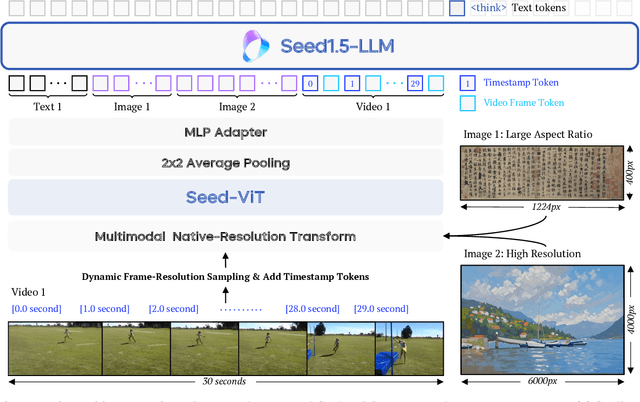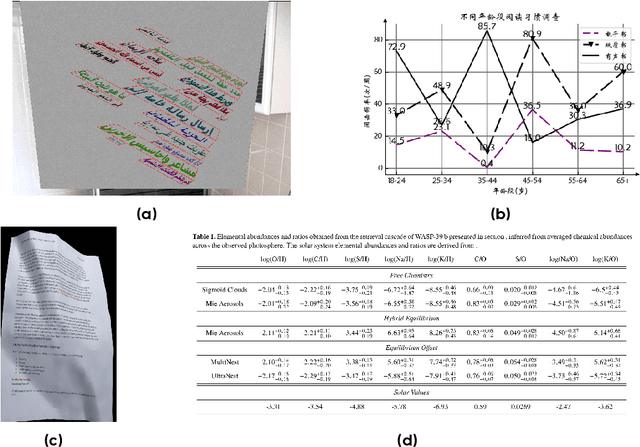Yue Ling
CellStream: Dynamical Optimal Transport Informed Embeddings for Reconstructing Cellular Trajectories from Snapshots Data
Nov 16, 2025Abstract:Single-cell RNA sequencing (scRNA-seq), especially temporally resolved datasets, enables genome-wide profiling of gene expression dynamics at single-cell resolution across discrete time points. However, current technologies provide only sparse, static snapshots of cell states and are inherently influenced by technical noise, complicating the inference and representation of continuous transcriptional dynamics. Although embedding methods can reduce dimensionality and mitigate technical noise, the majority of existing approaches typically treat trajectory inference separately from embedding construction, often neglecting temporal structure. To address this challenge, here we introduce CellStream, a novel deep learning framework that jointly learns embedding and cellular dynamics from single-cell snapshot data by integrating an autoencoder with unbalanced dynamical optimal transport. Compared to existing methods, CellStream generates dynamics-informed embeddings that robustly capture temporal developmental processes while maintaining high consistency with the underlying data manifold. We demonstrate CellStream's effectiveness on both simulated datasets and real scRNA-seq data, including spatial transcriptomics. Our experiments indicate significant quantitative improvements over state-of-the-art methods in representing cellular trajectories with enhanced temporal coherence and reduced noise sensitivity. Overall, CellStream provides a new tool for learning and representing continuous streams from the noisy, static snapshots of single-cell gene expression.
Seed1.5-VL Technical Report
May 11, 2025



Abstract:We present Seed1.5-VL, a vision-language foundation model designed to advance general-purpose multimodal understanding and reasoning. Seed1.5-VL is composed with a 532M-parameter vision encoder and a Mixture-of-Experts (MoE) LLM of 20B active parameters. Despite its relatively compact architecture, it delivers strong performance across a wide spectrum of public VLM benchmarks and internal evaluation suites, achieving the state-of-the-art performance on 38 out of 60 public benchmarks. Moreover, in agent-centric tasks such as GUI control and gameplay, Seed1.5-VL outperforms leading multimodal systems, including OpenAI CUA and Claude 3.7. Beyond visual and video understanding, it also demonstrates strong reasoning abilities, making it particularly effective for multimodal reasoning challenges such as visual puzzles. We believe these capabilities will empower broader applications across diverse tasks. In this report, we mainly provide a comprehensive review of our experiences in building Seed1.5-VL across model design, data construction, and training at various stages, hoping that this report can inspire further research. Seed1.5-VL is now accessible at https://www.volcengine.com/ (Volcano Engine Model ID: doubao-1-5-thinking-vision-pro-250428)
G3R: Generating Rich and Fine-grained mmWave Radar Data from 2D Videos for Generalized Gesture Recognition
Apr 23, 2024



Abstract:Millimeter wave radar is gaining traction recently as a promising modality for enabling pervasive and privacy-preserving gesture recognition. However, the lack of rich and fine-grained radar datasets hinders progress in developing generalized deep learning models for gesture recognition across various user postures (e.g., standing, sitting), positions, and scenes. To remedy this, we resort to designing a software pipeline that exploits wealthy 2D videos to generate realistic radar data, but it needs to address the challenge of simulating diversified and fine-grained reflection properties of user gestures. To this end, we design G3R with three key components: (i) a gesture reflection point generator expands the arm's skeleton points to form human reflection points; (ii) a signal simulation model simulates the multipath reflection and attenuation of radar signals to output the human intensity map; (iii) an encoder-decoder model combines a sampling module and a fitting module to address the differences in number and distribution of points between generated and real-world radar data for generating realistic radar data. We implement and evaluate G3R using 2D videos from public data sources and self-collected real-world radar data, demonstrating its superiority over other state-of-the-art approaches for gesture recognition.
Bio+Clinical BERT, BERT Base, and CNN Performance Comparison for Predicting Drug-Review Satisfaction
Aug 02, 2023Abstract:The objective of this study is to develop natural language processing (NLP) models that can analyze patients' drug reviews and accurately classify their satisfaction levels as positive, neutral, or negative. Such models would reduce the workload of healthcare professionals and provide greater insight into patients' quality of life, which is a critical indicator of treatment effectiveness. To achieve this, we implemented and evaluated several classification models, including a BERT base model, Bio+Clinical BERT, and a simpler CNN. Results indicate that the medical domain-specific Bio+Clinical BERT model significantly outperformed the general domain base BERT model, achieving macro f1 and recall score improvement of 11%, as shown in Table 2. Future research could explore how to capitalize on the specific strengths of each model. Bio+Clinical BERT excels in overall performance, particularly with medical jargon, while the simpler CNN demonstrates the ability to identify crucial words and accurately classify sentiment in texts with conflicting sentiments.
 Add to Chrome
Add to Chrome Add to Firefox
Add to Firefox Add to Edge
Add to Edge